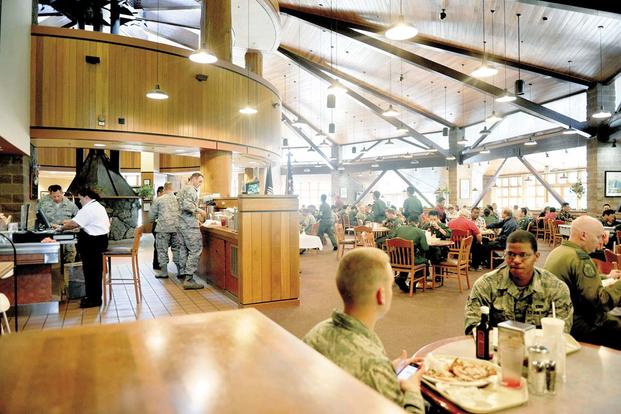An Ohio congressman wants to know why there's so much junk food served on base -- all while the military is losing thousands of troops a year who can't meet height and fitness standards.
At a House Appropriations subcommittee hearing Wednesday about quality of life in the military, Rep. Tim Ryan, a Democrat, grilled Sergeant Major of the Army Daniel Dailey and Chief Master Sergeant of the Air Force Kaleth Wright about the challenge of finding healthy options on base.
Ryan noted that many Army dining facilities have been consolidated or closed, and others have cut back their hours, as part of a multi-year drawdown and budget cut constraints. With limited access to chow halls and few healthy alternatives, he said, soldiers are more likely to grab a greasy and unhealthy meal.
"There's a continued high rate of service members losing their careers due to weight and fitness standards," Ryan said. "The number of Army soldiers kicked out for weight standards jumped tenfold between 2008 and 2012, with 1,800 soldiers losing their job [in 2012]. In the Navy, almost 10 percent of the force, 34,000 sailors, have failed at least one physical fitness test since 2011, and most were due to weight standards. So we know these problems."
Ryan complained that the Army and Air Force Exchange Service, which runs convenience and fast food restaurants on base, seems to be functioning apart from the effort to make troops healthier. The Army "Be Fit" program promoted by AAFES had in one instance spotlighted Popeyes Chicken as a healthy on-base choice, he said.
"I'm not saying we all have to go vegan in the military," he said. "What I am saying is, we understand now what healthy eating and the impact on unhealthy eating has on our warfighters, and to me, this just doesn't make any sense."
In the Air Force, Wright said, leaders are trying to bring in fresh options with a "Food Transformation Initiative" that includes gourmet menu items and a more robust salad bar at certain dining halls. But he said bases have struggled to attract more healthy restaurants and chains due to concerns about profitability and volume of business.
"We talk to some of these businesses, and it becomes a value proposition for them. They look and see if they can be profitable on a military installation," he said. "In some instances, the answer for them is no."
Dailey acknowledged similar challenges in attracting healthy food providers, saying franchising laws, local competition, and the costs associated with building on base all worked against leaders' efforts to get troops to eat differently. But he also said troops are to blame for eating unhealthily.
"The truth is, our soldiers make choices that aren't consistent with the values and traditions of military service," he said.
Ryan indicated he still isn't satisfied with the work being done to get troops to eat their greens.
"We've got 1,815 soldiers that we trained and spent a hell of a lot of money on that are no longer now in the Army, so that's wasted money," he said. "So here we are squeezing the budget, and that's a cost that I think goes overlooked a lot of the time."
-- Hope Hodge Seck can be reached at hope.seck@military.com. Follow her on Twitter at@HopeSeck.




























